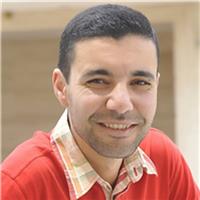منذ أول بث لها يوم 15 أبريل/نيسان 1928، ظلت "إذاعة الرباط" الحكومية المركزية الوحيدة تستحوذ على أسماع المغاربة، مع استثناءات غير مؤثرة بعدما انطلقت إذاع ات جهوية بعد استقلال المغرب، غير أنها بقيت في كثير من تفاصيلها تابعة للمركز.
وفي مايو/أيار 2006 ، وتزامنا مع إطلاق عدد من الورشات السياسية والاجتماعية والاقتصادية في المغرب، منحت الهيئة العليا للاتصال السمعي البصري، ترخيصا للجيل الأول من الإذاعات الخاصة، تلته تراخيص الجيل الثاني عام 2009.
مع هذا التحرير الذي يراه المراقبون نسبيا، لأنه يطال إلى حد الآن السمعي دون البصري، ظهرت وجوه إذاعية جديدة -لم تراع تراتبية العمل الإذاعي- تكفلت بمهمة تنشيط برامج إذاعية.
مهارات تقنية وتكوينية
يقصد بالتنشيط الإذاعي؛ المهمة التي توكل لشخص يجب أن يكتسب مهارات تكوينية وتقنية لازمة، تتيح له التعامل السّهل والمَرِن مع المستمعين المُفترَضين، وهو يوجّه إليهم خطابات صوتية من فضاء صغير يسمى "أستوديو"، بقصد تحقيق أهداف إخبارية وتثقيفية وترفيهية. كما يعتمد التنشيط على نقل التجارب وتوجيه سلوك الفرد، من أجل خدمة الآخر والارتقاء بأداء الأفراد، كل في مجال اهتمامه.
لكن هذا لم يتم بالشكل المطلوب مهنيا، خصوصا مع إنشاء إذاعات خاصة في المغرب، إذ إن تحرير القطاع والشروع في عملية استغلال الذبذبات، واجهه نقص في العنصر البشري خاصة المكوّن منه والمؤهل، فكان أن برزت بعض الوجوه الإذاعية في مجال التنشيط، كانت ستختار سكة أخرى لو لم يُحرَّر هذا القطاع، وأسندت إليها بشكل مباشر برامج لتنشيطها، دون مراعاة لتراتبية العمل الإذاعي ومراحله الأساسية حتّى.. وهذه التراتبية تفرض على الإذاعي الإلمام بتقنيات العمل الإذاعي، مثل التوضيب، والكتابة الإذاعية، ثم إنجاز برامج تجريبية، إضافة إلى ثقافة عامة واسعة، قبل الحصول على الإذن بالمرور إلى الميكروفون والبث المباشر.
دهشة البداية وإخلال بالمنظومة
إنها "دهشة البداية" -كما يصفها الإذاعي أحمد علوة- التي أدت إلى اختلاط الحابل بالنابل في مهنة حديثة بالمغرب، فارتكبت العديد من الأخطاء، "أولها يرتبط بالعنصر البشري (المذيع) الشخص الجالس خلف الميكرفون".
لقد هيمن على هذه الإذاعات الخاصة "مذيعون مدّعون (...) على ميكرفونات بعض المحطات الإذاعية، وبمباركة بعض أصحاب هذه الإذاعات بذريعة استقطاب أكبر عدد من المستمعين، مما جعلهم يتّجهون- عن قصد أو غير قصد- إلى خلق الرداءة والانحراف باللغة والمعلومة عن جادة الصواب".
هذا الأمر أدى في أكثر من مرّة إلى تدخل " الهيئة العليا للاتصال السمعي البصري" المكلفة بضبط وتقنين قطاع الاتصال السمعي البصري، فأصدرت عقوبات بحق إذاعات خاصة على خلفية إخلالها بالمنظومة القانونية والتنظيمية الجاري العمل بها، وهو ما حدث مؤخرا مع إحدى هذه الإذاعات الخاصة حينما ربط ضيف برنامج ديني يُبث على المباشر؛ بين الدّعارة والخيانة الزوجية وإصابة المرأة بسرطان عنق الرحم!
كما يستعمل بعض المنشطين في الإذاعات الخاصة لغة هجينة يمزجون فيها بين الدارجة والفرنسية، يجعل منها أجساما غير قابلة للتداول اليومي، إذ لا تستعمل أي لغة من اللغات -سواء الوطنية أو الرسمية أو حتى الأجنبية- في إطارها السليم والحقيقي.
هامش كبير للحرية
بالنسبة لمحمد بوصفيحة الملقّب إذاعيا بـ"مومو"، الذي يعدّ من أبرز المنشطين الإذاعيين من الجيل الجديد الذي برز مع تحرير القطاع، يرى أنه ليست هناك رداءة في برامج منشطي الإذاعات الخاصة.
ويضيف المنشط بإذاعة "هيت راديو" أن "برامج الإذاعات الخاصة فيها هامش أكبر من حرية التعبير، فانتقلت طريقة الحديث العادي من الشارع إلى هذه البرامج ومنشّطيها، وهو أمر إيجابي، عكس ما كان قبل تحرير القطاع، إذ كان التنشيط إما باللغة العربية أو الفرنسية".
لا ينكر بوصفيحة أن المنشطين مع تحرير القطاع "كانوا في مراحل البداية، لكن الأمور تطورت فانتقلوا بعد ذلك إلى الاحترافية بعدما تعلّموا مع المستمعين وبالتجربة، وهو ما يجب تقبّله، لأن الأمر كان يتعلق بتخصص جديد".
كما يصرّ المنشط الإذاعي مومو على أن "الإذاعات الخاصة جاءت بنموذج جديد، وأعطت حرية أكثر لمواهب جديدة للظهور، وهو ما أعطى نتائج إيجابية، خصوصا عندما أحيا هؤلاء المنشطون ببرامجهم العلاقة بين الإذاعة والمستمعين، وبدأ الناس يستمعون للراديو أكثر من ذي قبل".

وفي كل الحالات، فالمنشط "يهدف إلى أن يكون برنامجه ناجحا، وهو ما يعكسه استقطاب المزيد من المستمعين، لذلك يبقى التركيز الكلي للمنشط على المستمعين باعتبارهم الحكم الأول والأخير".
مهنة بمقوّمات وضوابط
بحكم عمله في إذاعة حكومية، يرى الإذاعي المدني دروز أن ما كان يميّز العمل الإذاعي قبل تحرير القطاع "سوادُ إعلاميين إذاعيين يسهرون على تنشيط فترات طويلة بشكل شبه مغلق؛ أي أحيانا دون إشراك المستمعين، الشيء الذي تتضاءل معه إمكانية الوقوع في الخطأ، عكس ما يحدث خلال البرامج الحوارية والتفاعلية المباشرة والمفتوحة على كل الاحتمالات"، وهو ما ميّز أكثر الإذاعات الخاصة بشكل من الأشكال.
ولا يخفي أحمد علوة من باب تجربته في العمل الإذاعي السابق بإذاعة الدار البيضاء الجهوية التابعة للمركز، ثم عمله الحالي بواحدة من الإذاعات الخاصة، أن الأخيرة "ساهمت في تحرير خطاب المغاربة بإشاعة ثقافة النقاش العمومي عبر برامج إذاعية مباشرة ناقشت جل المواضيع، بما فيها تلك المواضيع التي كانت تعتبر إلى عهد قريب من بين التابوهات (مثل المواضيع المرتبطة بالجنس والتربية الجنسية عموما) التي لم يكن يُسمح بمناقشتها علانية عبر الأثير".
لكن هذا يرتبط دائما كما يرى المدني دروز -الذي يعمل بإذاعة الدار البيضاء الجهوية- بطبيعة إسهام الصحفي المنشط الحاسمة، "بالنظر إلى دوره الذي لا يتمثل فقط -كما يسود الاعتقاد- في طرح أسئلة سطحية وتسلية المستمع، وإنما هو هنا لطرح السؤال الصائب والمنتقد إلى حد الإحراج أحيانا، مع تقديم معلومات ومعطيات إضافية مرتبطة بالموضوع".
فالمنشط الإذاعي "لا يروم ملء الفراغ أو اعتماد التنشيط السهل وجعله مطية لأغراض نفعية أو تجارية محضة، وإنما هو شخص مهني يحترف مهنة التنشيط التي أصبحت تُبصم ببصمات من يحترم جمهوره ويقدم له مواد تهمه في حياته وواقعه اليوميين.. يمررهما بشكل لائق هادف، أي بشكل مهني"، يوضح المدني دروز.
ويخلص دروز إلى أن التنشيط الإذاعي "مهنة بمقومات وضوابط واضحة، تتيح لممتهنيها الارتقاء وكسب ثقة الجمهور المستمع أو التواضع في الأداء مع ما يتبعه من حكم يصدره هذا الجمهور".
المصادر المعتمدة:
- المدني دروز، "التنشيط الإذاعي.. أي مفهوم وأية ممارسة؟"، الطبعة الأولى، 2011.
- أحمد علوة، "الميكرفون يتحرر.. تجربة من الداخل"، دار النشر إيديسوفت، الدار البيضاء، الطبعة الأولى، 2018.
- علي الباهي، "الإذاعات الخاصة في المغرب.. الواقع، التحديات، التوصيات"، منشورات المركز المغربي للدراسات والأبحاث المعاصرة، الرباط، الطبعة الأولى، 2012.







































